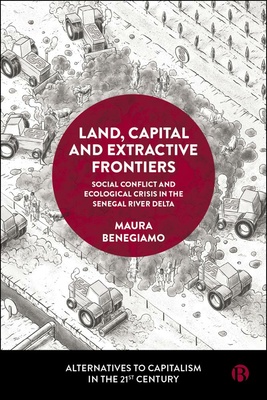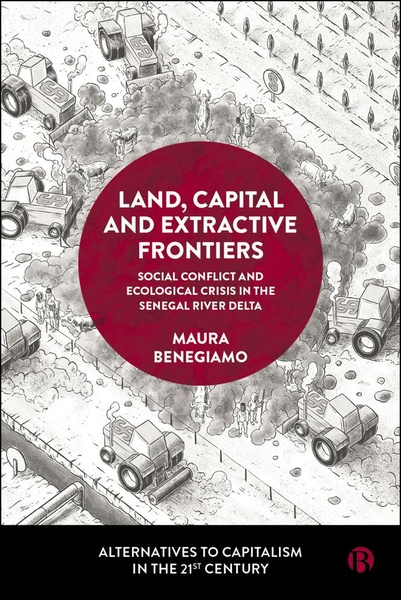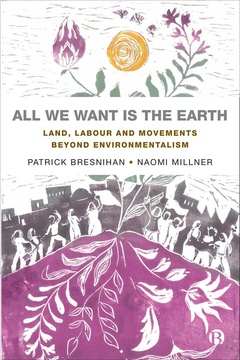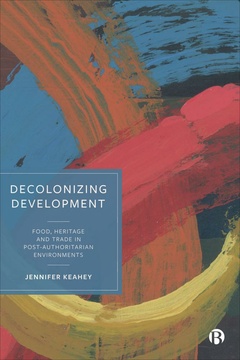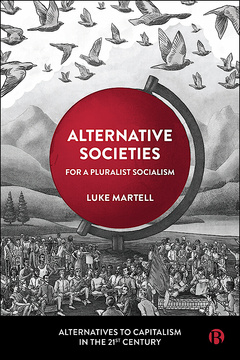Land, Capital and Extractive Frontiers
Social Conflict and Ecological Crisis in the Senegal River Delta
By Maura Benegiamo
Published
Apr 28, 2025Page count
152 pagesBrowse the series
Alternatives to Capitalism in the 21st CenturyISBN
978-1529237825Dimensions
234 x 156 mmImprint
Bristol University PressPublished
Apr 28, 2025Page count
152 pagesBrowse the series
Alternatives to Capitalism in the 21st CenturyISBN
978-1529237832Dimensions
234 x 156 mmImprint
Bristol University PressThis book examines ‘land grabbing’ - its colonial roots and the fraught relationship between capital and nature amidst the current ecological crisis.
Through ethnographic and archival research, Maura Benegiamo investigates an Italian company’s acquisition of 20,000 hectares in Senegal’s River Delta for agrofuel production and delves into the struggles of pastoral communities affected by the project. Through this landmark case, the book shows how European energy and global food security policies are reshaping rural spaces, expanding agrarian extractivism in sub-Saharan Africa.
By shedding light on how contemporary capital–nature relationships perpetuate socio-ecological crises and colonial models, the book highlights the enduring forms of opposition to these processes. At the heart of these struggles lies a crucial question: how can we understand today’s crises while reclaiming alternative ways of living, producing, and inhabiting the land?
"This book offers a clear picture of what 'green growth' looks like to those on the extractive end of the neocolonial capitalist economy – and why their resistance is part of a global struggle for systemic change." Stefania Barca, University of Santiago de Compostela
"More socioenvironmental studies should address the Global South—not only because this part of the globe has been understudied, but especially because it comprises areas that are exposed to brutal forms of extractivism ... A brilliant example of critical environmental studies that embrace such a standpoint is Maura Benegiamo’s recent book." Monthly Review on Italian edition La terra dentro il capitale.
Maura Benegiamo is an associate researcher in economic and labour sociology at the University of Pisa. She has conducted research and consultant activities across Europe, Sub-Saharan Africa, and Central America, focusing on environmental conflicts, natural resource extraction, and agrarian development. Her work has been published in various international scientific journals, and she is the creator of the documentary Progreso7, which documents resistance movements against large-scale mining in Guatemala.
Foreword by Luigi Pellizzoni
Introduction
Chapter 1. New Frontiers, Old Margins
Chapter 2. Africa as the Granary of the World? Land, Extractivism and Food Security
Chapter 3. Narratives and Failures of Development
Chapter 4. Conflicts in Extractive Territories
Conclusion: Pastoral Futures in Dialogue on Environmental Justice







